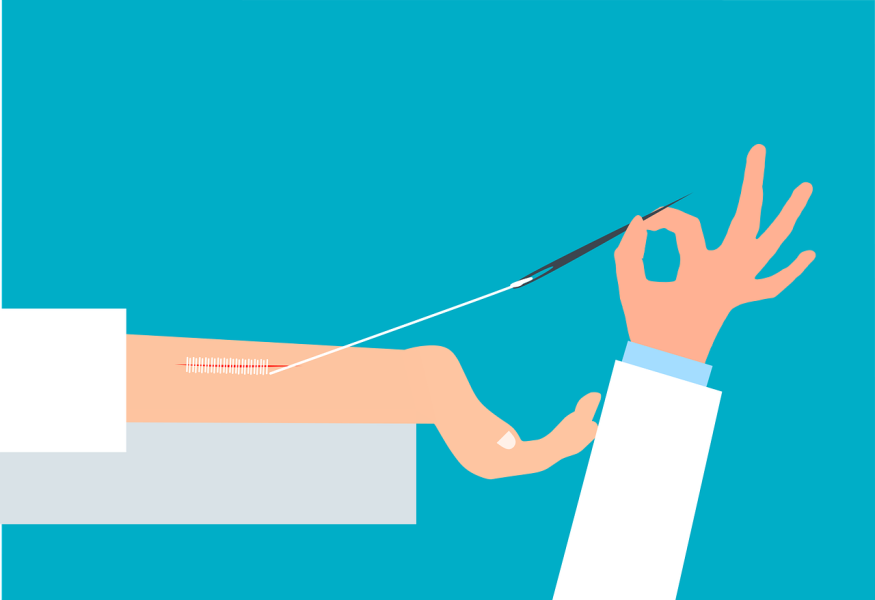
Engineers from the Massachusetts Institute of Technology (MIT) have created innovative "smart" sutures inspired by ancient techniques, which not only secure tissue but also have advanced capabilities.
According to the news release, these sutures are coated with hydrogels that can be infused with sensors, medications, or cells that can release therapeutic substances. They possess the ability to detect inflammation and administer drugs, enhancing the healing process.
Smart Sutures Inspired by Catgut
Taking inspiration from ancient catgut sutures, MIT engineers have developed innovative smart sutures derived from animal tissue. These sutures are coated with hydrogels capable of incorporating sensors, drugs, and cells that release therapeutic molecules.
While catgut sutures made from purified collagen are already used in various surgeries, the MIT team aimed to enhance their properties by enabling them to sense and deliver drugs.
The researchers focused on creating tissue-derived sutures with advanced functionalities, including toughness, absorbability, and the ability to detect inflammation. Such sutures could be particularly valuable for patients with Crohn's disease undergoing intestinal surgery, where secure and well-healed seals are vital. By incorporating inflammation-sensing capabilities into the sutures, early warning signs of improper healing can be detected.
To develop the smart sutures, the team used pig tissue that was decellularized using detergents to remove the cells and reduce the chance of inflammation in the host tissue, as per the report of Laboratory Equipment. The process left behind a cell-free material called "De-gut," containing collagen and other biomolecules found in the extracellular matrix.
The resulting material demonstrated comparable tensile strength to commercially available catgut sutures while inducing a significantly lower immune response from the surrounding tissue.
The use of decellularized tissue in regenerative medicine has shown promise, and this study presents a novel application of tissue-derived materials for sensing and drug delivery purposes. By leveraging the functionality of decellularized tissue, the researchers have opened up new possibilities for these smart sutures in medical applications.
Additional Functions of the Smart Sutures
To enhance the functionality of the sutures, the researchers applied a hydrogel coating to the suture material. As Science Daily reported, this allowed them to embed various cargo within the hydrogel, such as microparticles that can sense inflammation, different drug molecules, or even living cells.
For inflammation sensing, the researchers developed microparticles coated with peptides that are released when inflammation-associated enzymes called MMPs are present in the tissue. These peptides can be detected through a simple urine test.
The hydrogel coating also served as a carrier for drugs used in the treatment of inflammatory bowel disease, including dexamethasone and adalimumab. These drugs were incorporated into microparticles made from FDA-approved polymers, which control the release rate of the drugs. The researchers believe that this strategy might be used to deliver different types of medications, such as antibiotics or chemotherapy treatments.
Additionally, smart sutures have the potential to deliver therapeutic cells, such as stem cells. In their experiments, the researchers embedded the sutures with stem cells engineered to express a fluorescent marker and found that the cells remained viable for at least seven days when implanted in mice. The cells also demonstrated the production of vascular endothelial growth factor (VEGF), a growth factor that stimulates blood cell growth.
Check out more news and information on Materials Science in Science Times.
© 2026 ScienceTimes.com All rights reserved. Do not reproduce without permission. The window to the world of Science Times.












